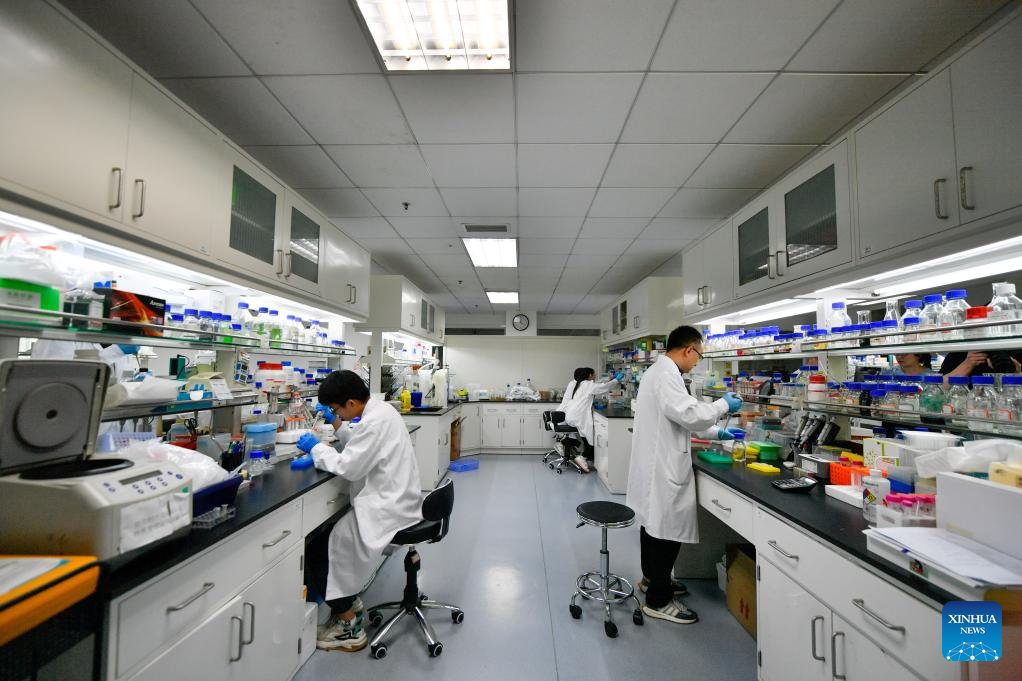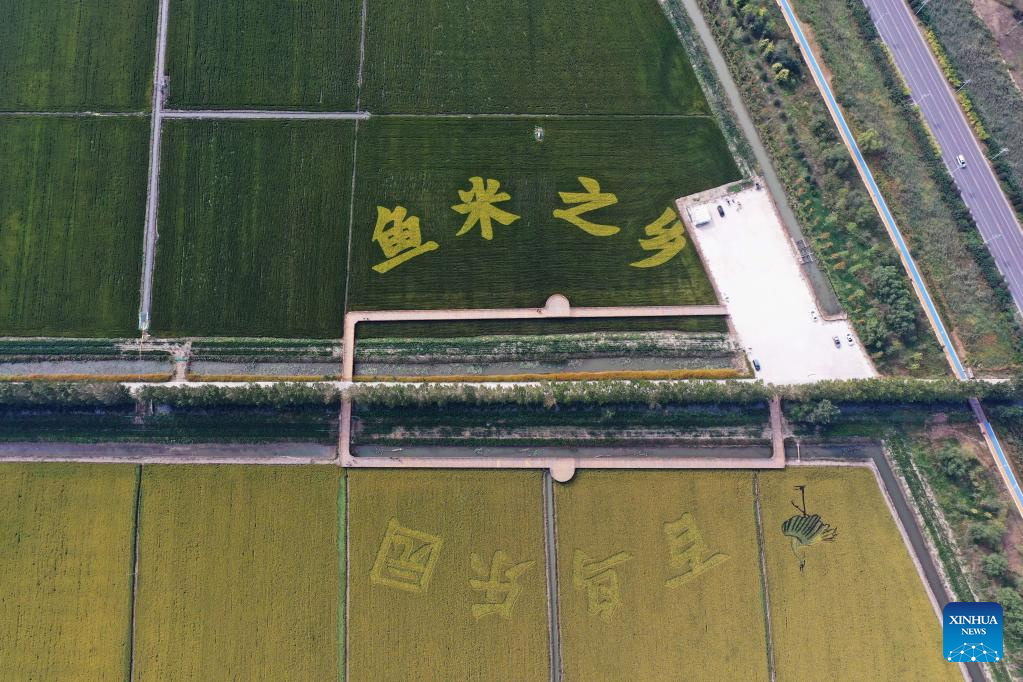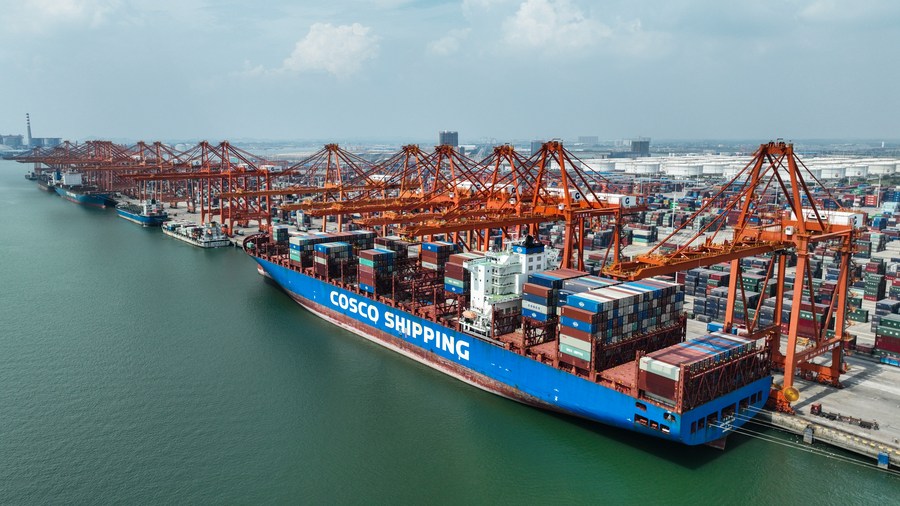
Scientists carry out experiments at a laboratory of the Tianjin Institute of Industrial Biotechnology under the Chinese Academy of Sciences in Tianjin, north China, Aug. 13, 2023. Chinese scientists have developed an artificial method of synthesizing hexoses from carbon dioxide (CO2) in a laboratory environment -- a key step in the global development of synthetic sugar. (Xinhua/Sun Fanyue)
TIANJIN, Aug. 16 -- Chinese scientists have developed an artificial method of synthesizing hexoses from carbon dioxide (CO2) in a laboratory environment -- a key step in the global development of synthetic sugar.
The study that resulted in this new method was conducted by the Tianjin Institute of Industrial Biotechnology and the Dalian Institute of Chemical Physics, both of which are under the umbrella of the Chinese Academy of Sciences. The results were published on the website of the journal Science Bulletin on Wednesday.
The team said that developing artificial "CO2-sugar" platforms is meaningful to addressing challenges that land scarcity and climate change pose to the supply of dietary sugar.
"We present a versatile chemoenzymatic roadmap based on aldol condensation, iso/epimerization, and dephosphorylation reactions for asymmetric CO2 and H2 assembly into sugars with perfect stereocontrol," the team said in the paper.
This chemical-biological platform has demonstrated a greater carbon conversion yield than the conventional "CO2-bioresource-sugar" process, and could easily be extended to precisely synthesize other high-order sugars from CO2, it said.
Two years ago, the Tianjin Institute of Industrial Biotechnology developed an artificial method of synthesizing starch from CO2.








